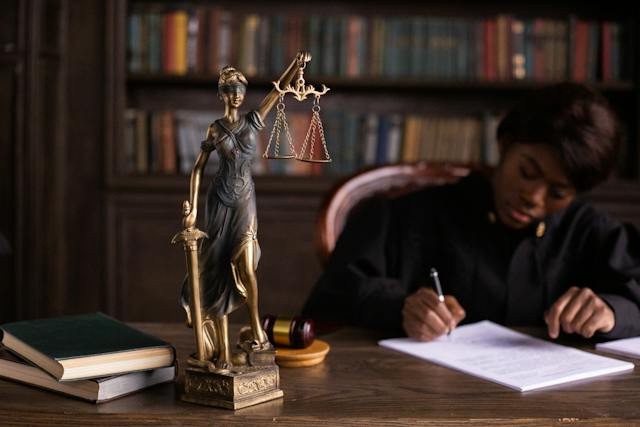
The Supreme Court of the United States, on November 13, 2023, placed a spotlight on the tacit rules overseeing the conduct of the Justices and their staff. With the wave of criticism on the Court's demeanor surging, it released a Code of Conduct, threading a string of principles derived from common law, statutory provisions, ethics guidelines for federal judges, and advisory opinions by the Judicial Conference Committee on Codes of Conduct.
What Stance Does the Code Hold on Conflicts of Interest and Disqualification?
Canon 3 bears the blueprint addressing conflicts of interest and disqualification. As per the Code, any Justice facing a presumption of bias in any case should disqualify themselves voluntarily. This provision applies particularly when a Justice or their immediate family has a financial stake or affiliation with the party before the Court. Despite this, filing an amicus curiae brief or representation by amicus curiae counsel does not mandate disqualification.
What About the Extrajudicial Activities of the Justices?
Canon 4 maps out the route for Justices regarding extrajudicial activities. It grants liberties to Justices to use their voice and intellect to speak, write, or teach - conditional that they do not participate in politically fueled, commercially infused events, or those held by any group with a vested financial interest in Court proceedings. Justices can play roles in non-profit entities as long as the entity is unlikely to find itself before the Court or be a party to serious court proceedings elsewhere. While Justices can aid the planning of non-profit fundraisers, they cannot personally solicit funds or use their judicial prestige as a fundraising tool.
How are Acceptance and Disclosure of Gifts Governed?
Through Canon 4, the Code clarifies the murky waters of gift acceptance and disclosure. Justices are now explicitly obligated to adhere to the Judicial Conference Regulations on Gifts, thus clearing past doubts regarding these regulations' jurisdiction over Supreme Court Justices.
Does the Code Restrict Political Activities?
Canon 5 acts as a firm shield against political activities by the Justices. It bars them from leadership roles within political organizations, discourages speeches or endorsements of political entities or candidates, and prohibits financial contributions to, or attendance at events sponsored by political organizations or candidates.
The Code's commentary highlights that these Canons serve as broad principles guiding conduct rather than specific rules, relinquishing the need for judgment or discretion.
In What Ways Does Legal Expertise Play into This?
With the introduction of the Code, the prominence of legal expertise has escalated. Clients appearing before the Supreme Court require astute legal help to navigate these newly outlined structures. By understanding these changes, a legal expert can better guide their clients, ensuring this new era of transparency and accountability upholds the sanctity of justice delivery.
The Supreme Court's Code marches towards heightened legal and ethical clarity, battling criticism, and aligning the judicial system's pillars with the standards expected of them. By threading these woven principles into a unified Code of Conduct, the Court sets a new precedent in safeguarding justice and fortifying the trust vested in them by the public.




